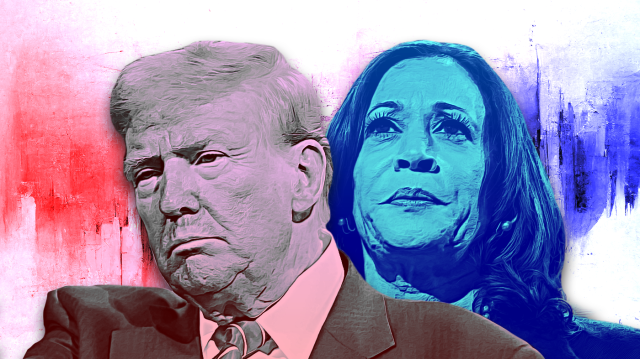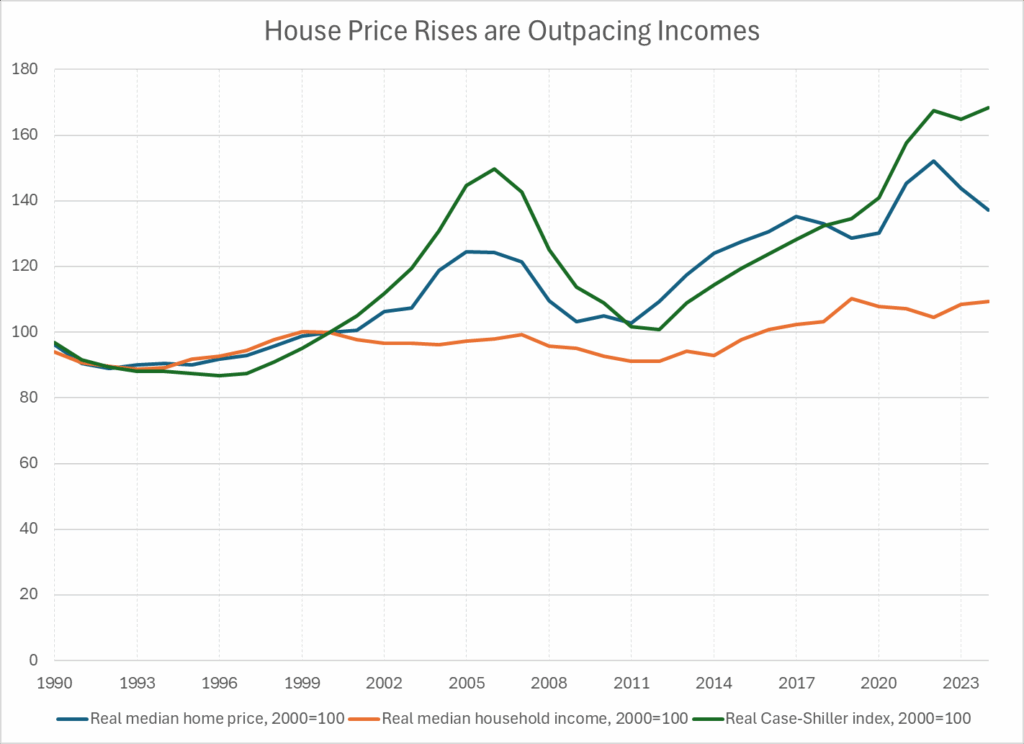John McGinnis’s lead forum essay is characteristically intelligent, scrupulous, and concise. He reads the judicial tea leaves, discerning the Roberts Court’s priorities when it comes to undoing some of the institutional distortions that previous Courts have countenanced, and offering a path to reinstate a more robust nondelegation doctrine as the central element of constitutional renewal.
I write here not to quibble with McGinnis’s main argument, with which I am in general agreement, but to raise a question about an issue he mentions only in passing—though I think it is more relevant to the nondelegation issue than that reference suggests. And while his general approach is legal in nature, mine is more institutional and political.
McGinnis brings up the Court’s expansive commerce clause jurisprudence only by way of an analogy to the possibility that the Court, in reasserting “the Constitution’s design for executive and judicial powers,” could be “inviting … chaos.” He notes that widespread reliance on the expansion of federal power has long been seen as a reason not to overrule past precedents that have expanded the scope of the commerce clause, even if one believes they ballooned federal power well beyond what is authorized by the Constitution’s text. The horizontal, separation-of-powers problems under consideration, he believes, do not run into this issue, or can be addressed in a way that avoids it.
McGinnis does not say anything more one way or the other on the commerce clause or the expansion of federal power more generally, so I do not impute to him any particular viewpoint. I will only suggest that there is a close and domino-like connection between these three problems: 1) the erosion of strict limits on federal power, 2) the delegation of power from the legislature to the executive, and 3) the empowerment within the executive of unaccountable bureaucratic agencies. McGinnis rightly notes that the Roberts Court seems most interested in and has had the most success with #3; that it has at least some interest in #2, though just how far it is willing to go remains in question; and that it seems mostly uninterested in #1 beyond symbolic gestures. I would caution, however, that those latter two problems are dominoes that fell for good reasons once the first problem became entrenched and generally accepted.
Therefore, any attempt to revive the Constitution’s separation of powers framework without doing something about its federalism framework may only cause new problems.
To make a brief digression, I will call on James Madison to set the table conceptually. One of the most unjustly neglected of the Federalist essays is, I believe, number 56, which considers whether the overall size of the House of Representatives is adequate to make it properly representative of the people’s interests. One of his premises is relevant to the present discussion:
It is a sound and important principle that the representative ought to be acquainted with the interests and circumstances of his constituents. But this principle can extend no further than to those circumstances and interests to which the authority and care of the representative relate. An ignorance of a variety of minute and particular objects, which do not lie within the compass of legislation, is consistent with every attribute necessary to a due performance of the legislative trust. In determining the extent of information required in the exercise of a particular authority, recourse then must be had to the objects within the purview of that authority.
He then goes on to note the relatively few and defined “circumstances and interests” that federal authority addressed—namely, interstate commerce, taxation, and the militia. A relatively small handful of representatives will be perfectly capable of possessing a sympathy of interests and the “local knowledge” necessary to make policies in those areas.
Similarly, in number 14, Madison reminds his readers that the federal government’s
jurisdiction is limited to certain enumerated objects, which concern all the members of the republic, but which are not to be attained by the separate provisions of any. The subordinate governments, which can extend their care to all those other subjects which can be separately provided for, will retain their due authority and activity.
He then goes on to note that “were it proposed by the plan of the convention to abolish the governments of the particular States, its adversaries would have some ground for their objection” (emphasis added)—namely, their objection that the new Congress would be unable to adequately account for the interests of its people.
Fast-forward 230 years or so, and the landscape of policymaking is radically different, but Madison’s basic premise is still relevant. There is a certain amount of specialized knowledge that is necessary to make any given policy. When we are talking about an extremely large and diverse country, it may still be possible to make policy in a republican fashion by representatives, but only if the policies are broad and limited in scope. If that same government were to be a general-purpose regulator of all aspects of common life, genuine republican self-government would no longer be possible.
Any attempt to resolve the structural distortions of our constitution, without addressing the expansive commerce clause, may be like attempting to flatten a water balloon—squeeze in one spot, and you will only cause a flare-up somewhere else.
One of the most common arguments in favor of delegation is that Congress does not possess the requisite knowledge and expertise to make good policy. Accordingly, it hands that duty off to those who do. To be sure, the kind of “knowledge” and “expertise” that we talk about today isn’t exactly what Madison had in mind, but his basic point still holds. Advocates of delegation are right that members of Congress don’t really have the requisite knowledge to make detailed policy choices on every conceivable social question. Where they go wrong is thinking that the solution is to send that power to “experts” in the appropriate bureau with scientific knowledge as their guide, rather than sending that power back to localities and states with local and circumstantial knowledge as their guide.
Moreover, as federal authority has expanded, so has the public expectation that the federal government will solve a variety of social ills that it never had the capacity to address properly. This almost certainly contributes in some way to the declining trust in federal institutions, of which Congress has long been the prime example.
If the Court is successful in pushing real policy choices back to Congress, as McGinnis hopes, we are likely to relearn the lesson that, given the current scope of federal regulatory power, the institution is incapable of making such choices—at least of making them well. If our reforms stop at the horizontal plane of nondelegation, it may simply result in a greater crisis of congressional legitimacy as it inevitably fails in its expected role. That may prompt an even stronger push for rule by executive, a practice that seems to have growing bipartisan support. Perhaps the Court would stand fast in resistance to the backlash, striking down “phone-and-pen” governance. But it may cave; or its justices may be replaced; or it may be ignored. That last possibility is a prospect that might not be too far off, given just how executive-centered our political system is becoming.
To avoid that fate, the Court would need to take the next step of the constitutional restoration project: the vertical balance. That would be a much more difficult prospect. Americans now look to Washington, DC, not only for policy but for their identity as citizens; the most powerful interests in the country all have a vested interest in having a single hub of authority to which they can send their lawyers and lobbyists; our economic system is built around there being one set of rules pronounced from DC; and both major political parties have built messages and coalitions around national visions that given them every reason to resist an erosion of federal power.
If all this is correct, it would raise two important questions. First, could McGinnis and Rappaport’s “prospective overruling” work for the commerce clause, too? Could it make decentralization palatable enough to prevent massive resistance? Second, does the current iteration of the Roberts Court have any more inclination to pursue this path than the 2012 version, when Roberts himself went out of his way in NFIB v. Sebelius to ensure that some rationale would be found to uphold federal regulation, even when the commerce clause fails?
In theory, I don’t see why prospective overruling could not be applied to questions about the scope of federal power. Just as McGinnis describes its delegation questions, it could allow past pieces of legislation that have generated sufficient reliance interests to stand as a matter of precedent, while still making clear that they are unconstitutional on the merits, and thus rob them of precedential import. Nevertheless, prospective overruling would likely create an extremely awkward and rigidified regulatory environment in which outdated federal rules would still apply, without any ability to update them. And it would raise the question as to whether such grandfathered-in rules would perpetually preempt state and local attempts to update them.
Which is to say that prospective overruling of commerce clause precedents would likely be an extremely difficult prospect—maybe not even any easier than the “chaos” that outright overruling would invite. John Roberts has already shown his disinclination to pursue the difficult path. Will the other originalist justices be willing to take on such a radical agenda?
Any attempt to resolve the structural distortions of our constitution, however, without addressing the expansive commerce clause, may be like attempting to flatten a water balloon—squeeze in one spot, and you will only cause a flare-up somewhere else. The only way to succeed is to choose a painful route: poke a hole and let the water out.


